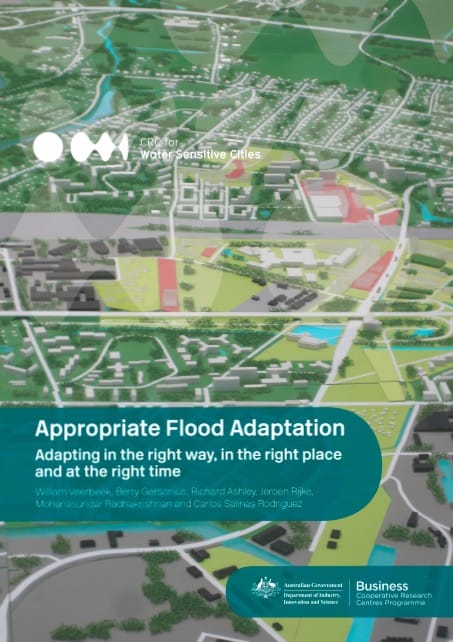Appropriate flood adaptation: Adapting in the right way, in the right place and at the right time

Climate change induced extreme weather events call for a reconsideration of how built-up areas are designed and are already forcing incremental adaptation of existing cities, neighbourhoods and properties. Yet, the magnitude of climate change and the associated consequences for the urban water cycle are highly uncertain. Even when minimised by further scientific progress, the propagation of uncertainties from the global climate models to local weather models and its associated consequences will remain. Apart from climate change, other environmental and societal changes might be even more unpredictable. Who could have foreseen 50 years ago to what extent many cities have grown, how the service economy has changed the shape of cities’ central business districts and how citizens commute from the extensive suburbs to their jobs? Simply extrapolating past trends would have never predicted the world we are living in now. Although there has been significant scientific progress, creating reliable future predictions remains intrinsically problematic; partly because we are actively changing the conditions that influence that future, including the climate. The question, therefore, becomes how to anticipate future conditions without striving for reliable predictions, i.e. how to manage uncertainty?